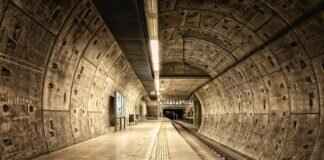JNUSU Elections 2024: A Student Democracy in Action
The much-anticipated Jawaharlal Nehru University Students’ Union (JNUSU) elections for the academic year 2024–25 are set to take place on April 25 in Delhi. The official schedule, released by the JNUSU Election Committee, marks the beginning of a democratic process that has garnered significant attention and anticipation among the student body.
The forthcoming elections come after a period of student agitation, with protests erupting over the administration’s delay in announcing the election schedule. In response to mounting pressure, the official dates were finally unveiled, setting the stage for what promises to be a lively and spirited electoral season.
### A Journey to the Ballot Box: Key Dates and Events
The election timeline is meticulously planned, with various milestones leading up to the final day of voting. The process kicks off with the publication of the tentative voters’ list on April 13, allowing students to verify their details and make any necessary corrections. This initial phase sets the groundwork for the subsequent stages of the electoral journey.
Nomination forms will be made available on April 14, signaling the commencement of the candidate nomination period. From April 15 onwards, aspiring candidates can officially file their nominations, vying for the opportunity to represent their peers in the student union. As the deadline for submissions looms, the anticipation and excitement among potential candidates are palpable.
The final list of candidates will be unveiled on April 16, marking a crucial juncture in the election process. Simultaneously, a press conference and candidate briefing are scheduled for the same day, offering candidates an opportunity to present their platforms and engage with the student body. This moment serves as a prelude to the forthcoming campaign period, where candidates will vie for support and articulate their visions for the union.
### Building Momentum: Engaging the Student Community
In the days leading up to the election, a series of events and meetings are planned to foster student engagement and participation. School-level general body meetings (GBMs) are slated for April 17 and April 21, providing students with a platform to discuss key issues, express their concerns, and engage with candidates. These meetings serve as vital forums for dialogue and exchange, shaping the discourse surrounding the election.
The university-wide GBM, scheduled for April 22, represents a pivotal moment in the electoral process, bringing together students from across disciplines and backgrounds. The collective gathering serves as a testament to the diversity and vibrancy of the JNU student community, underscoring the significance of student representation and advocacy.
As the election draws closer, the presidential debate on April 23 looms as a highlight of the campaign season. Candidates will have the opportunity to articulate their visions, engage in dialogue with their peers, and showcase their leadership potential. The debate represents a crucial moment for candidates to distinguish themselves and connect with voters, shaping the narrative of the election.
### The Final Countdown: Casting Votes and Declaring Results
On April 25, the day of reckoning arrives as students head to the ballot box to cast their votes. The voting process is divided into two sessions, running from 9 am to 1 pm, and from 2.30 pm to 5.30 pm, ensuring accessibility and convenience for all students. The turnout and engagement on voting day are expected to be high, reflecting the enthusiasm and commitment of the student body.
Following the conclusion of voting, the counting of votes will commence at 9 pm on the same day, with results expected to be declared on April 28. The outcome of the election will shape the course of student governance and advocacy at JNU, influencing the trajectory of the student union and its engagement with critical issues.
As the JNUSU elections unfold, they stand as a testament to the power of student activism, engagement, and democratic participation. The journey to the ballot box is not merely a bureaucratic process but a reflection of the vibrant and dynamic student community at JNU, united in its commitment to shaping a better future. With each vote cast and each voice heard, the spirit of student democracy thrives, paving the way for a new chapter in the university’s history.














